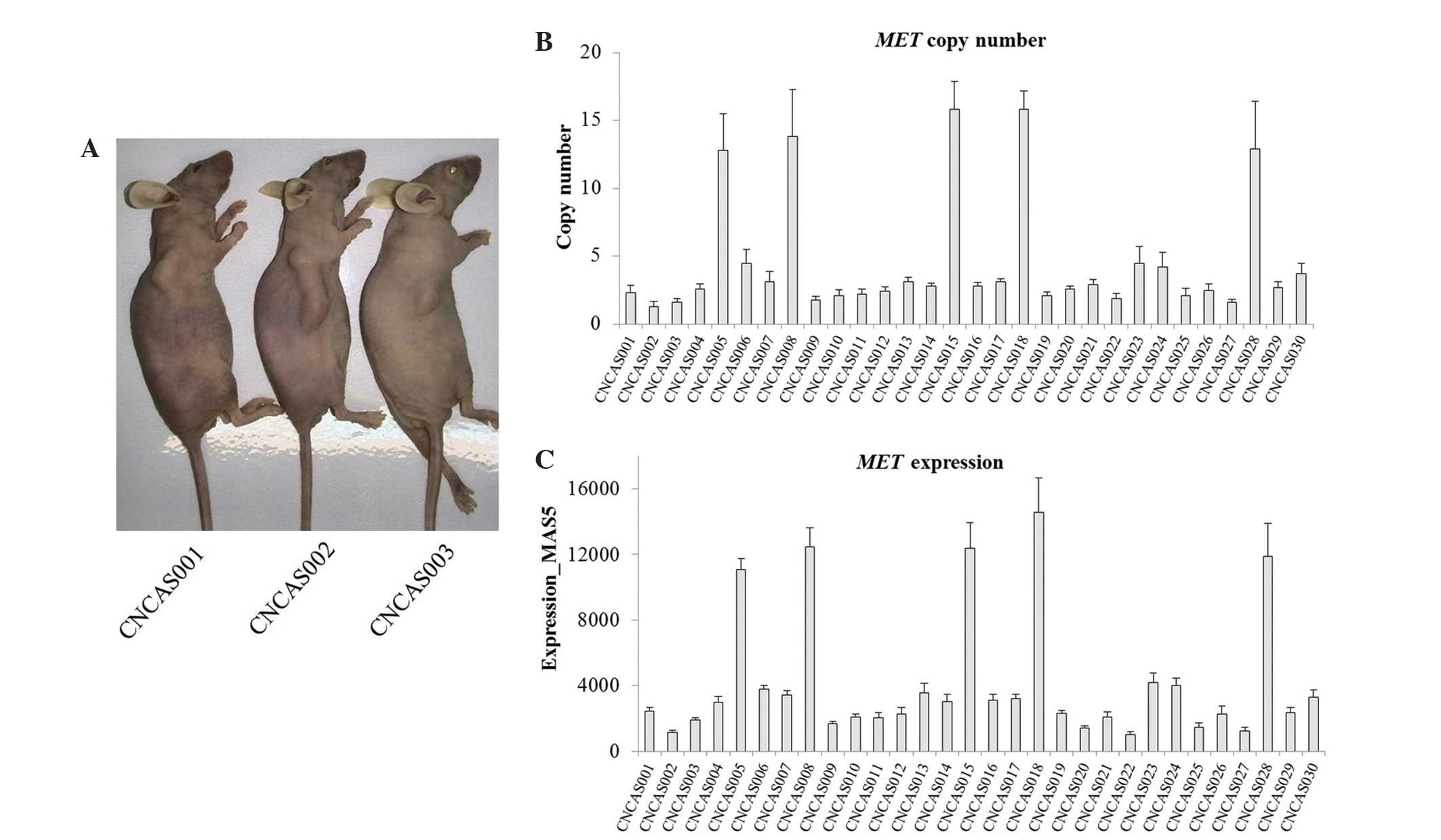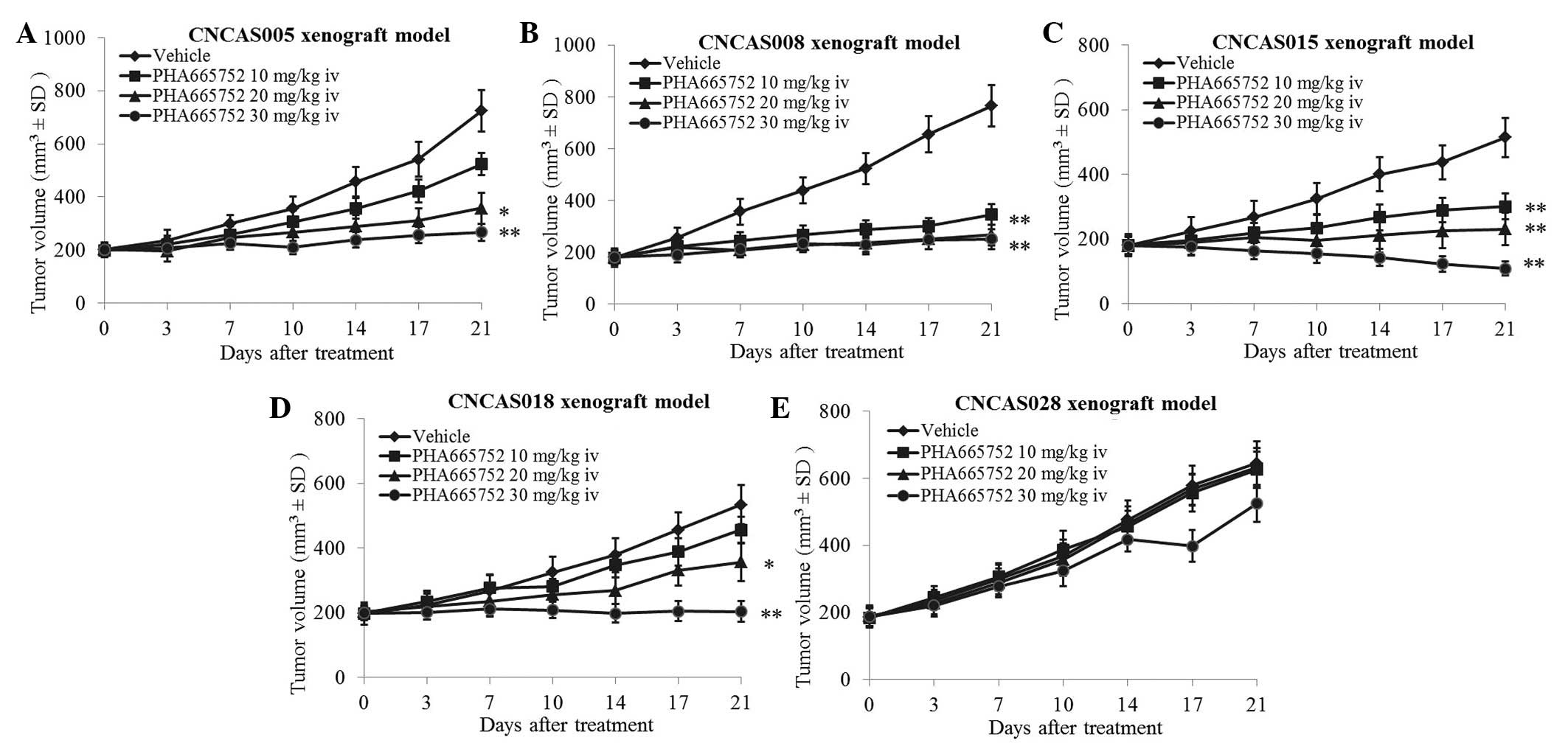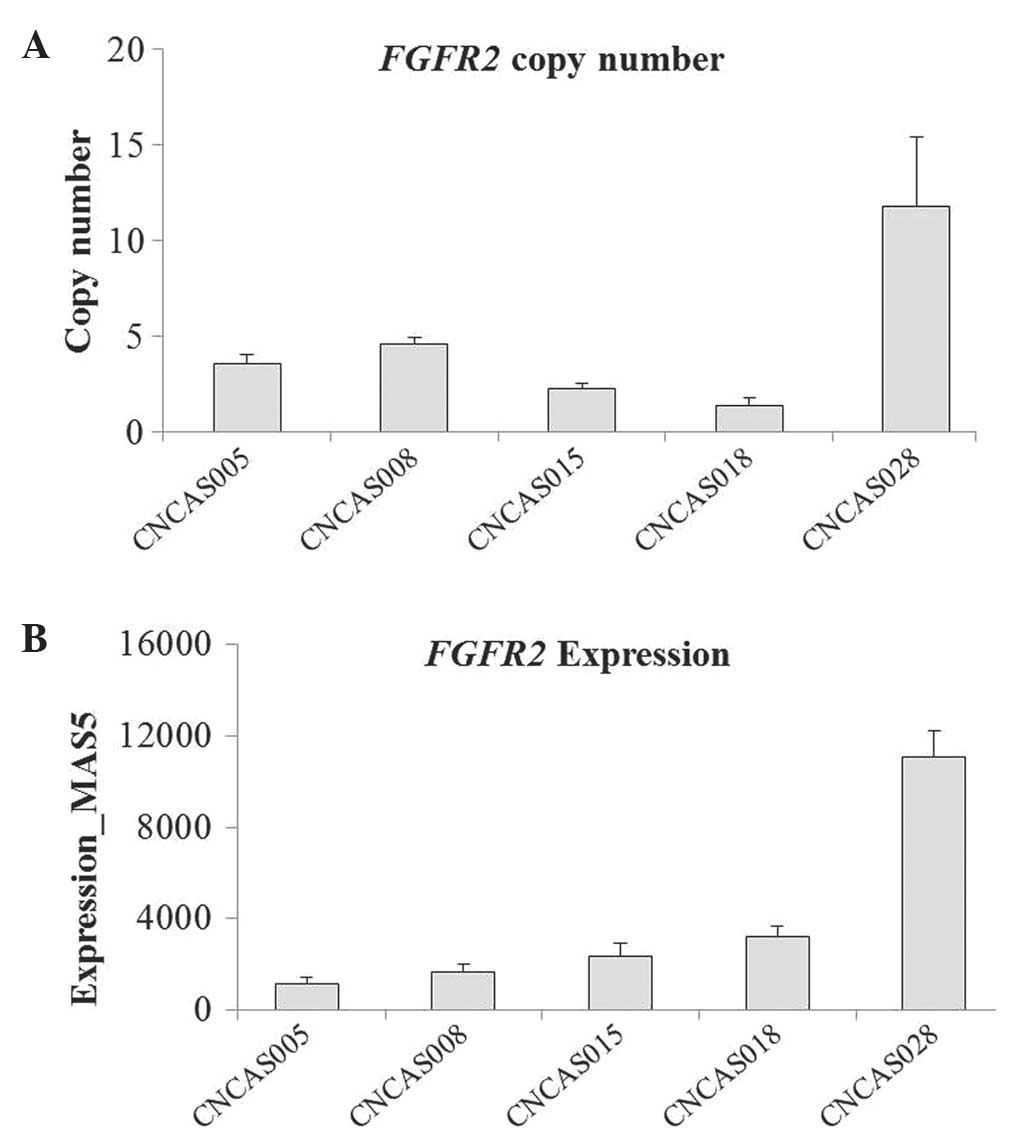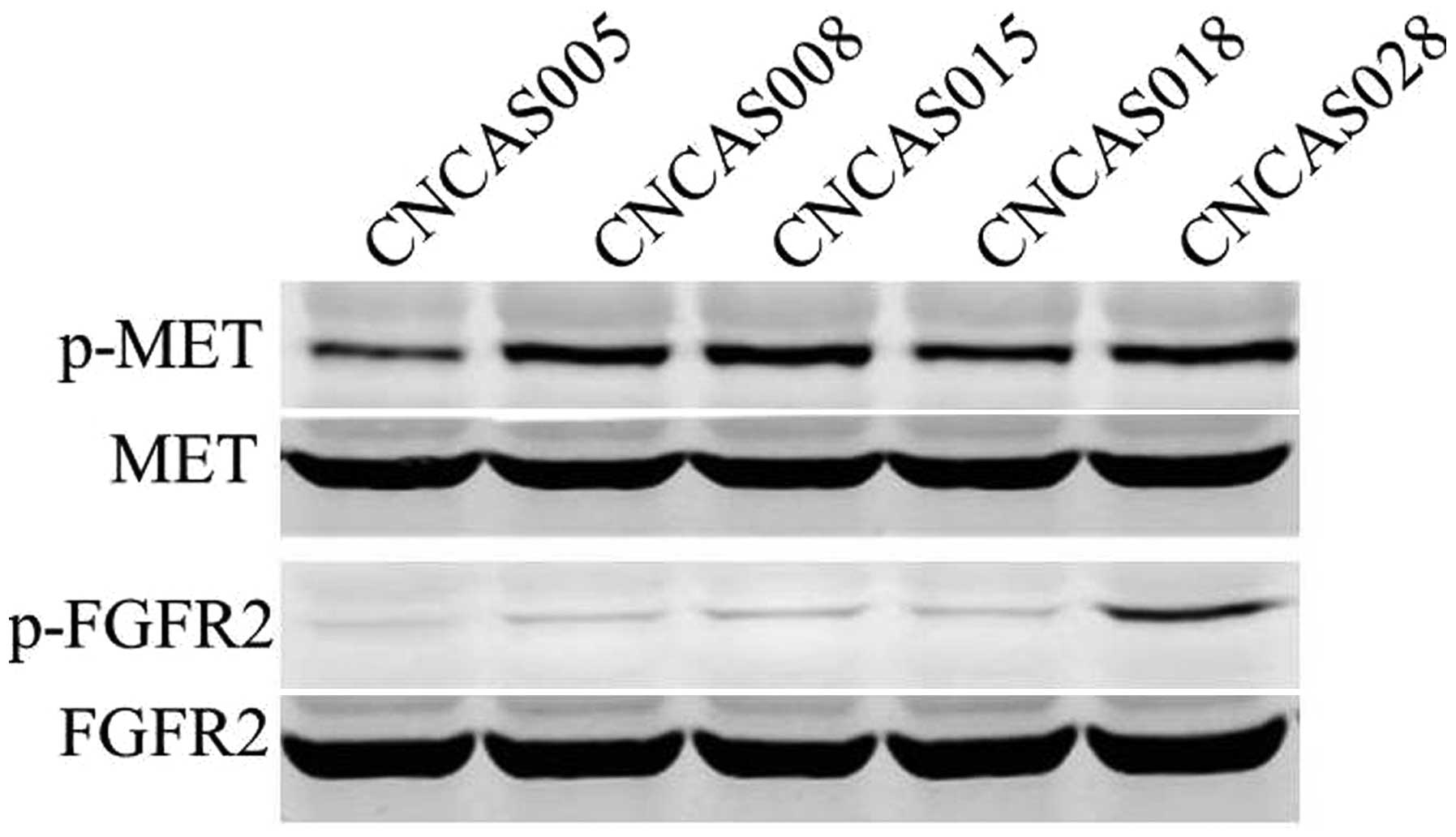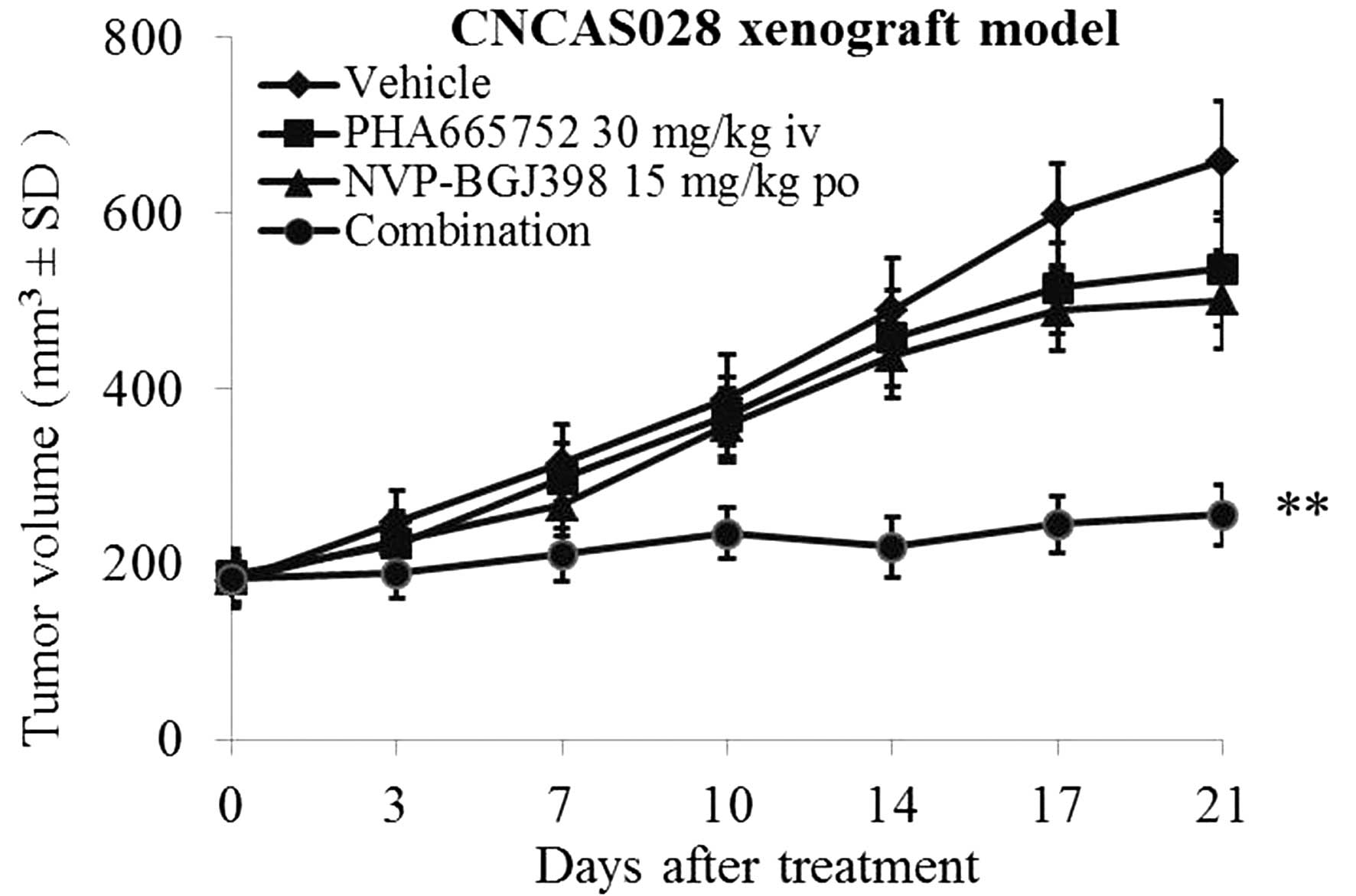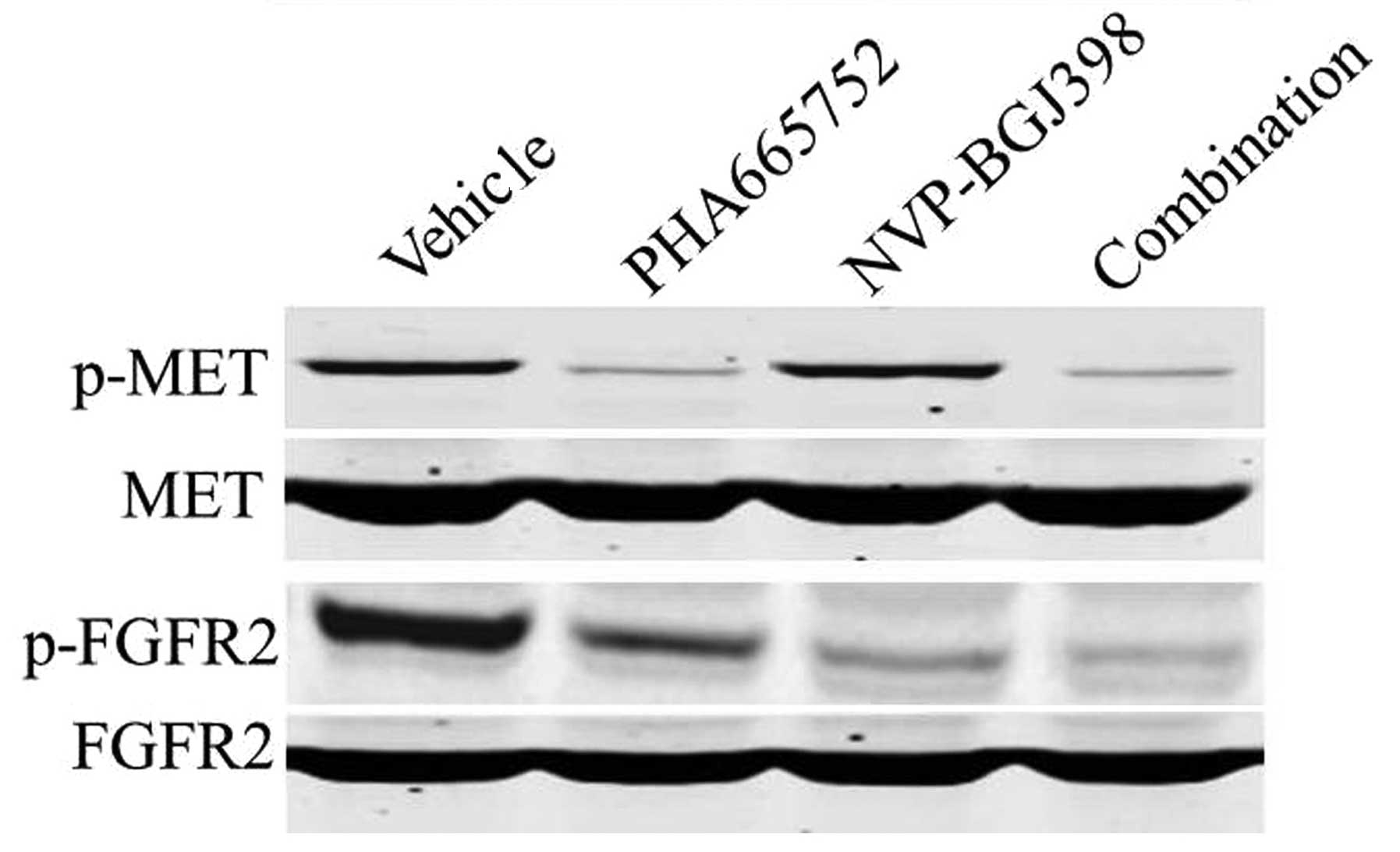|
1
|
Kamangar F, Dores GM and Anderson WF:
Patterns of cancer incidence, mortality and prevalence across five
continents: Defining priorities to reduce cancer disparities in
different geographic regions of the world. J Clin Oncol.
24:2137–2150. 2006. View Article : Google Scholar : PubMed/NCBI
|
|
2
|
Camargo MC, Anderson WF, King JB, Correa
P, Thomas CC, Rosenberg PS, et al: Divergent trends for gastric
cancer incidence by anatomical subsite in US adults. Gut.
60:1644–1649. 2011. View Article : Google Scholar : PubMed/NCBI
|
|
3
|
Yamashita K, Sakuramoto S, Nemoto M,
Shibata T, Mieno H, Katada N, et al: Trend in gastric cancer: 35
years of surgical experience in Japan. World J Gastroenterol.
17:3390–3397. 2011. View Article : Google Scholar : PubMed/NCBI
|
|
4
|
Meyer HJ and Wilke H: Treatment strategies
in gastric cancer. Dtsch Arztebl Int. 108:698–705. 2011.PubMed/NCBI
|
|
5
|
Morishita A, Gong J and Masaki T:
Targeting receptor tyrosine kinases in gastric cancer. World J
Gastroenterol. 20:4536–4545. 2014. View Article : Google Scholar : PubMed/NCBI
|
|
6
|
Maestrini E, Tamagnone L, Longati P,
Cremona O, Gulisano M, Bione S, et al: A family of transmembrane
proteins with homology to the MET-hepatocyte growth factor
receptor. Proc Natl Acad Sci USA. 93:674–678. 1996. View Article : Google Scholar : PubMed/NCBI
|
|
7
|
Sattler M and Salgia R: c-Met and
hepatocyte growth factor: Potential as novel targets in cancer
therapy. Curr Oncol Rep. 9:102–108. 2007. View Article : Google Scholar : PubMed/NCBI
|
|
8
|
Lee JH, Han SU, Cho H, Jennings B, Gerrard
B, Dean M, et al: A novel germ line juxtamembrane Met mutation in
human gastric cancer. Oncogene. 19:4947–4953. 2000. View Article : Google Scholar : PubMed/NCBI
|
|
9
|
Nakajima M, Sawada H, Yamada Y, Watanabe
A, Tatsumi M, Yamashita J, et al: The prognostic significance of
amplification and overexpression of c-met and c-erb B-2 in human
gastric carcinomas. Cancer. 85:1894–1902. 1999. View Article : Google Scholar : PubMed/NCBI
|
|
10
|
Hara T, Ooi A, Kobayashi M, Mai M,
Yanagihara K and Nakanishi I: Amplification of c-myc, K-sam and
c-met in gastric cancers: detection by fluorescence in situ
hybridization. Lab Invest. 78:1143–1153. 1998.PubMed/NCBI
|
|
11
|
Sierra JR and Tsao MS: c-MET as a
potential therapeutic target and biomarker in cancer. Ther Adv Med
Oncol. 3 Suppl:S21–S35. 2011. View Article : Google Scholar : PubMed/NCBI
|
|
12
|
Kawakami H, Okamoto I, Arao T, Okamoto W,
Matsumoto K, Taniguchi H, et al: MET amplification as a potential
therapeutic target in gastric cancer. Oncotarget. 4:9–17.
2013.PubMed/NCBI
|
|
13
|
Christensen JG, Zou HY, Arango ME, Li Q,
Lee JH, McDonnell SR, et al: Cytoreductive antitumor activity of
PF-2341066, a novel inhibitor of anaplastic lymphoma kinase and
c-Met, in experimental models of anaplastic large-cell lymphoma.
Mol Cancer Ther. 6:3314–3322. 2007. View Article : Google Scholar : PubMed/NCBI
|
|
14
|
Abidoye O, Murukurthy N and Salgia R:
Review of clinic trials: agents targeting c-Met. Rev Recent Clin
Trials. 2:143–147. 2007. View Article : Google Scholar : PubMed/NCBI
|
|
15
|
Bengtsson H, Irizarry R, Carvalho B and
Speed TP: Estimation and assessment of raw copy numbers at the
single locus level. Bioinformatics. 24:759–767. 2008. View Article : Google Scholar : PubMed/NCBI
|
|
16
|
Pietrantonio F, Maggi C, Di Bartolomeo M,
Facciorusso MG, Perrone F, Testi A, et al: Gain of ALK gene copy
number may predict lack of benefit from anti-EGFR treatment in
patients with advanced colorectal cancer and RAS-RAF-PI3KCA
wild-type status. PLoS One. 9:e921472014. View Article : Google Scholar : PubMed/NCBI
|
|
17
|
Hartgrink HH, Jansen EP, van Grieken NC
and van de Velde CJ: Gastric cancer. Lancet. 374:477–490. 2009.
View Article : Google Scholar : PubMed/NCBI
|
|
18
|
Oshima T and Masuda M: Molecular targeted
agents for gastric and gastroesophageal junction cancer. Surg
Today. 42:313–327. 2012. View Article : Google Scholar : PubMed/NCBI
|
|
19
|
Funakoshi Y, Mukohara T, Tomioka H,
Ekyalongo RC, Kataoka Y, Inui Y, et al: Excessive MET signaling
causes acquired resistance and addiction to MET inhibitors in the
MKN45 gastric cancer cell line. Invest New Drugs. 31:1158–1168.
2013. View Article : Google Scholar : PubMed/NCBI
|
|
20
|
Jänne PA, Gray N and Settleman J: Factors
underlying sensitivity of cancers to small-molecule kinase
inhibitors. Nat Rev Drug Discov. 8:709–723. 2009. View Article : Google Scholar : PubMed/NCBI
|
|
21
|
SeboltLeopold JS and English JM:
Mechanisms of drug inhibition of signalling molecules. Nature.
441:457–462. 2006. View Article : Google Scholar : PubMed/NCBI
|
|
22
|
Corso S, Ghiso E, Cepero V, Sierra JR,
Migliore C, et al: Activation of HER family members in gastric
carcinoma cells mediates resistance to MET inhibition. Mol Cancer.
9:1212010. View Article : Google Scholar : PubMed/NCBI
|
|
23
|
Lee NV, Lira ME, Pavlicek A, Ye J, Buckman
D, Bagrodia S, et al: A novel SND1-BRAF fusion confers resistance
to c-Met inhibitor PF-04217903 in GTL16 cells though [corrected]
MAPK activation. PLoS One. 7:e396532012. View Article : Google Scholar : PubMed/NCBI
|















